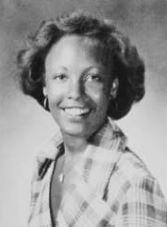Abstract
This interview with Kim A.Taylor, class of 1977, was captured during the 2018 Black Alumni Reunion. Taylor begins with her childhood and upbringing within a musical/artist community of Harlem, and how that led to her decision to attend Brown University. This segment of the interview includes an interesting recollection of meeting Dr. Martin Luther King Jr when Taylor was a child. Then, she goes on to discuss particularly salient memories during her time at Brown, specifically her involvement in the campus-wide walk-out and protest for black students on campus. Taylor also talks about the academic enrichment her Brown education offered, specifically while reading accounts of slavery for her thesis in English. She describes how her studies influenced her time at Yale University, where she obtained her law degree contemporaneously with Anita Hill. At the end of the interview, Taylor describes her friendship with Hill, and her memories of attending the famous United States Supreme Court confirmation hearing for Judge Clarence Thomas with Hill, where Anita Hill testified that Thomas had sexually harassed her in the workplace. Taylor also draws connections to her experience then with the current political climate. Taylor-Thomas discusses the 2018 Supreme Court confirmation hearing of Judge Brett Kavanaugh, where Dr. Christine Blasey Ford also testified that Kavanaugh had sexually assaulted her while in high school.
Recorded on September 21, 2018 in Pembroke Hall, Brown University, Providence, RI
Interviewed by Mary Murphy, Nancy L. Buc ’65 LLD‘94 hon Pembroke Center Archivist
Suggested Chicago style citation: Taylor, Kim A. Interview. By Mary Murphy. Pembroke Center Oral History Project, Brown University. September 21, 2018.
Biography
Kim A. Taylor grew up in Harlem, New York until she attended Brown University (class of 1977). At Brown, Taylor was a very active member on campus, participating in several political activities, including a notable walk-out during which hundreds of students of color took over University Hall for 72 hours. Graduating in English (specifically in American Literature) and Political Science in 1977, Taylor went on to law school at Yale, at which point she made a formative friendship with Anita Hill, with whom she is still in contact. Upon graduating in 1980, she began practicing law as a public defender in Washington DC. Starting as a staff attorney, over the course of seven years, Taylor became the Director of the Public Defender Service, a position she served until 1991. As director, she “supervised a staff of 150 lawyers and staff with a budget of $7 million. Public Defender Service provided indigent defense in juvenile and criminal justice systems, initiated and settled a conditions of confinement suit against the District of Columbia for conditions in juvenile facilities, and launched a Prisoners Rights Program.” In 1991, amidst the United States Supreme Court confirmation hearing for Judge Clarence Thomas and Anita Hill’s testimony of sexual harassment by Clarence Thomas against her, Taylor started teaching courses related to law, ethics, and criminal defense at Stanford Law School. She then moved back to New York City, and started teaching at New York University School of Law. Between the years 2000-2001, she launched the Criminal Justice Program at the Brennan Centre for Justice at the NYU School of Law. This program provided technical assistance to public defenders and community activists seeking to collaborate on criminal justice issues. Following these two years, she then went on to be the regional managing director, and then chief executive officer, of Duke Corporate Education. Presently, Taylor is a professor of Clinical Law, with a “focus on the impact of race and gender on public policy – particularly criminal and juvenile justice policy – and the need to prepare lawyers to meet the demands of practice in and on behalf of underrepresented communities.” Additionally, Taylor has written numerous publications, including “Invisible Woman: Reflections on the Clarence Thomas Confirmation Hearing” (1993), “The Politics of Common Ground” (1998) “Empty Votes in Jury Deliberations” (2000), “Girl Talk – Examining Racial and Gender Lines in Juvenile Justice” 2006, and “Minority Rule: Redefining the Age of Criminality” (2014). Taylor has also received several awards for outstanding teaching, and has presented at various prestigious universities across the United States.
